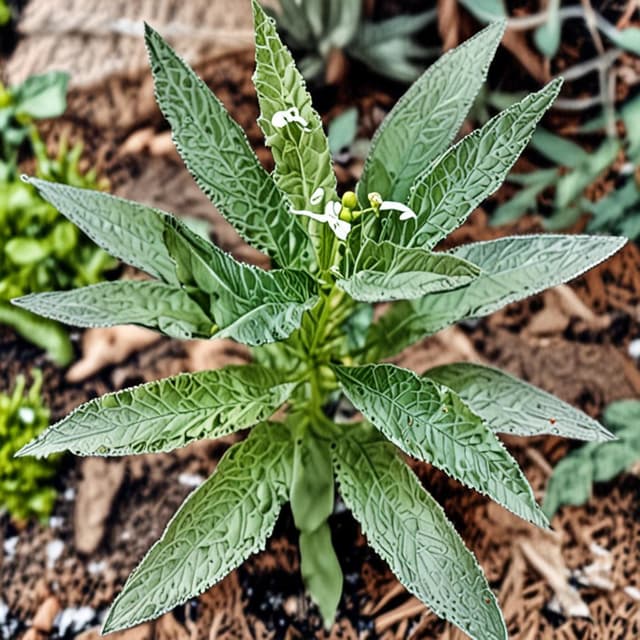
| Effects | Intense but short-lived dissociative effects when consumed |
| Plant type | Perennial herb |
| Common name | Salvia divinorum |
| Native range | |
| Current status | Regulated or prohibited in most countries, with ongoing research into therapeutic potential |
| Historical use | Traditional spiritual and shamanic practices of indigenous Mazatec communities |
| Primary active compound | Salvinorin A |
Salvia divinorum is a species of plant in the Lamiaceae (mint) family, native to the Sierra Mazateca region of Oaxaca, Mexico. It has a long history of traditional use by the indigenous Mazatec people for its psychoactive and divinatory properties, and has more recently been adopted as a recreational drug in many parts of the world.
The Salvia divinorum plant can grow up to one meter tall, with large green leaves and white flowers. It is found naturally in the mountain cloud forests of Oaxaca, where it has been used for centuries by Mazatec shamans and curanderos (traditional healers) in spiritual and healing rituals.
The Mazatec people call the plant ''ska María Pastora'' ("leaves of the Virgin Mary the Shepherdess") and traditionally use it to induce altered states of consciousness, divine the future, and commune with the spirit world. Salvia leaves are typically chewed or made into a tea, producing intense but short-lived dissociative and hallucinogenic effects.
The primary active compound in Salvia divinorum is salvinorin A, a kappa-opioid receptor agonist. When ingested, it produces a range of psychoactive effects including dissociation, visual distortions, synesthesia, and a profound sense of depersonalization and derealization. The experience is often described as dreamlike, spiritual, or even transcendent.
The effects of Salvia typically last between 5-30 minutes, depending on the dose and method of consumption. While generally considered safe from a physiological standpoint, Salvia can be psychologically challenging and has been associated with adverse outcomes like anxiety, paranoia, and unpleasant "bad trips."
The legal status of Salvia divinorum varies widely around the world. In many countries, including Mexico, Salvia is considered a legal but controlled substance. Sale and use are regulated, often with requirements for a prescription or age restrictions.
Other nations like the United States of America, United Kingdom, and Australia have outright banned the possession, sale, and cultivation of Salvia. Enforcement of these prohibitions, however, has been inconsistent. In some regions, Salvia remains available through online vendors or at specialty "head shops."
For the indigenous Mazatec people, Salvia divinorum is considered a sacred plant with profound spiritual and divinatory properties. Shamans and healers have used it for centuries in healing rituals, to communicate with ancestors and nature spirits, and to gain insight into the future.
The Salvia experience is seen as a journey of the soul, allowing the user to access alternate dimensions and planes of existence. It is typically consumed in the context of spiritual ceremonies, guided by experienced practitioners. This ritual use continues to this day in Mazatec communities, despite encroaching modernization.
Despite its long history of traditional use, Salvia divinorum was only first isolated and identified by Western science in the 1930s. Since then, there has been growing interest in its potential therapeutic applications, particularly in the fields of psychiatry and neuroscience.
Preliminary research has explored Salvia's utility in the treatment of addiction, depression, and chronic pain. The powerful dissociative effects of salvinorin A may offer unique insights into the neurobiology of consciousness, perception, and mood disorders. However, the substance's legal status has hindered large-scale clinical trials.
The increasing popularity of Salvia divinorum, especially as a recreational drug, has sparked debates around its appropriate use and regulation. Advocates argue that it is a safe, natural alternative to synthetic psychedelics, with potential therapeutic benefits. Critics counter that it is too unpredictable and potentially dangerous, especially for inexperienced users.
Salvia's ambiguous legal status has also led to concerns around quality control, product safety, and youth access. There are calls in some countries to either further restrict or fully decriminalize and regulate the substance. Ongoing research and evolving social attitudes will likely continue to shape the debate around Salvia divinorum in the coming years.